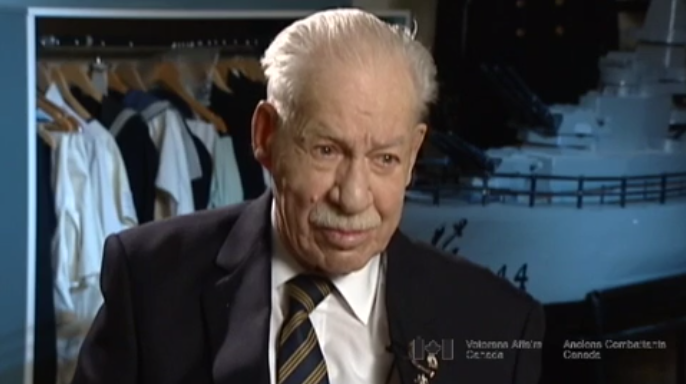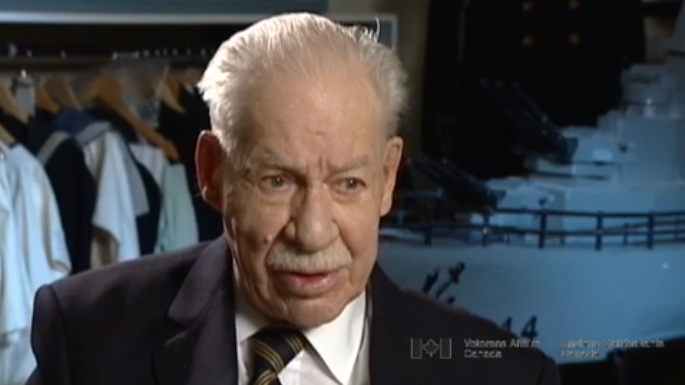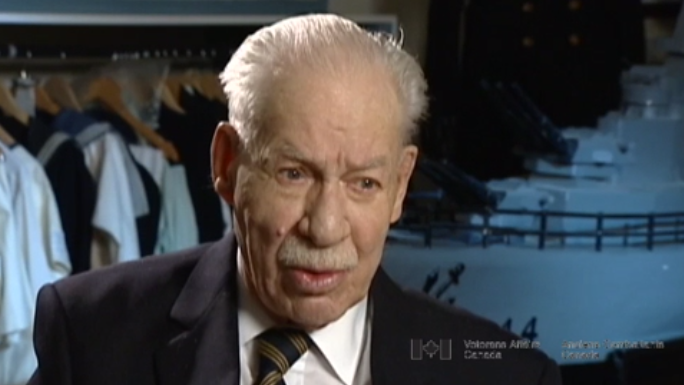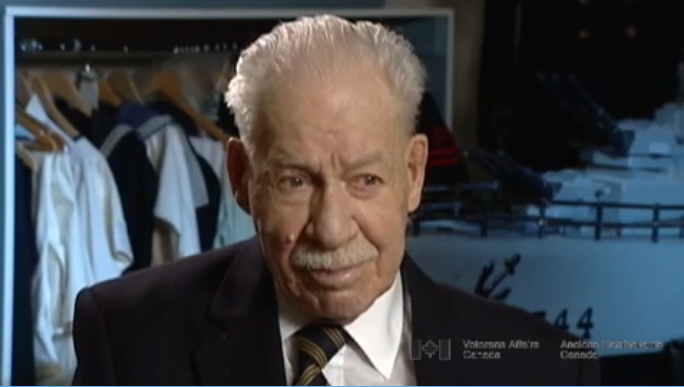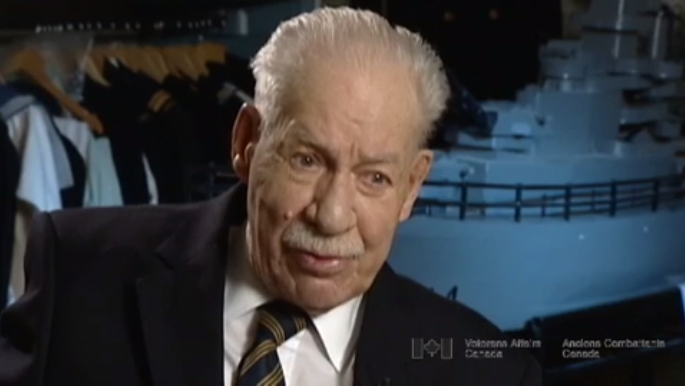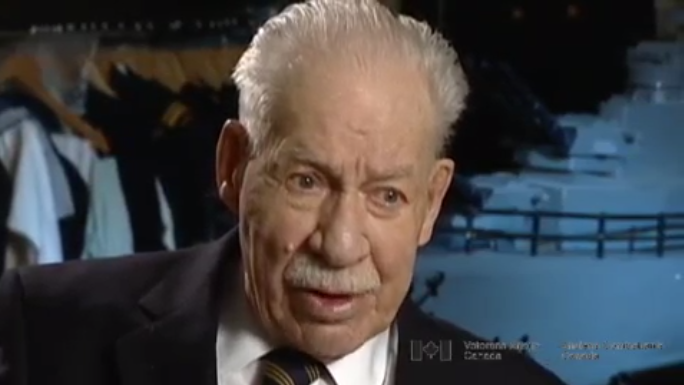The March Out
Heroes Remember
The March Out
Transcript
Description
Mr. Jackson describes their forced march to Northern Germany and being rescued by British forces.
Donald Jackson
Mr. Jackson was born in Field, British Columbia on August 25, 1915. He was well educated, having completed high school and three years of university where he studied accounting. A friend convinced Mr. Jackson that he could earn a better living in the air force, so he enlisted. Unlike most Canadian pilots, his war experience started in Southeast Asia, where the Allies tried to stem the Japanese advance. Mr. Jackson was then deployed to India and flew bombing sorties into Afghanistan. He became ill, shipped back to Canada and then joined a bomber squadron, piloting a Halifax plane. On a bombing mission over Peenemunde, he was shot down, captured, and remained in a POW camp until war’s end. After returning to England, he married the nurse who had cared for him in India. Mr. Jackson remained in the RCAF after the war, taking part in the aerial mapping of Canada’s North. He is a member of the Royal Canadian Legion, and still dabbles in accounting. Mr. Jackson resides in Saskatoon, Saskatchewan.
Meta Data
- Medium:
- Video
- Owner:
- Veterans Affairs Canada
- Duration:
- 3:28
- Person Interviewed:
- Donald Jackson
- War, Conflict or Mission:
- Second World War
- Location/Theatre:
- Northwest Europe
- Battle/Campaign:
- Ruhr Valley
- Branch:
- Air Force
- Units/Ship:
- 102 Squadron, 4 Group
- Rank:
- Wing Commander
- Occupation:
- Pilot
Related Videos
- Date modified:



